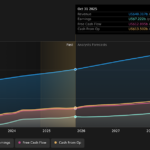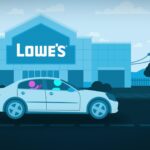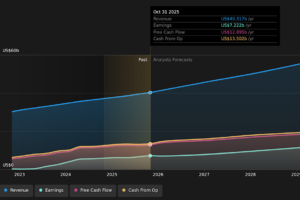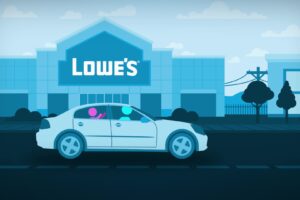<p class="canvas-atom canvas-text Mb(1.0em) Mb(0)–sm Mt(0.8em)–sm" type="text" content="Amazon (NASDAQ: AMZN) has been running a program called Amazon Accelerator for about a year, offering merchants and manufacturers marketing and sales support in exchange for exclusivity on its website. The Accelerator program contract goes beyond exclusivity and reportedly gives Amazon the rights to acquire a brand for a fixed price on 60 days’ notice, according to a report by The Wall Street Journal. Often times, the acquisition option is a very low price. The Journal reported seeing contracted buyout prices as little as $10,000.” data-reactid=”11″>Amazon (NASDAQ: AMZN) has been running a program called Amazon Accelerator for about a year, offering merchants and manufacturers marketing and sales support in exchange for exclusivity on its website. The Accelerator program contract goes beyond exclusivity and reportedly gives Amazon the rights to acquire a brand for a fixed price on 60 days’ notice, according to a report by The Wall Street Journal. Often times, the acquisition option is a very low price. The Journal reported seeing contracted buyout prices as little as $10,000.
<p class="canvas-atom canvas-text Mb(1.0em) Mb(0)–sm Mt(0.8em)–sm" type="text" content="Based on the Journal report, it looks like the Accelerator program creates a kind of a one-sided deal in favor of Amazon. Amazon can avoid all the legwork of developing a successful product, but if something does succeed, it gets to buy it on the cheap.” data-reactid=”12″>Based on the Journal report, it looks like the Accelerator program creates a kind of a one-sided deal in favor of Amazon. Amazon can avoid all the legwork of developing a successful product, but if something does succeed, it gets to buy it on the cheap.


Image source: Amazon.
<h2 class="canvas-atom canvas-text Mb(1.0em) Mb(0)–sm Mt(0.8em)–sm" type="text" content="Straddling the line” data-reactid=”25″>Straddling the line
The Amazon Accelerator program offers several advantages to those that choose to participate, all designed at helping products gain a customer base in the increasingly crowded marketplace.
Accelerator products get prominent placement in Amazon’s search results, which is something any merchant can alternatively buy through Amazon’s advertising platform. It also gives merchants access to Vine — a program that gives Amazon buyers free products in exchange for reviews. Amazon vendors can participate in the program apart from Accelerator, but it costs $2,500 to join.
In light of recent antitrust allegations against Amazon, neither program perk would qualify as too unfair. It’s a strategic investment on Amazon’s part in exchange for exclusive retail rights for a brand. For example, other retailers might offer more prominent shelf space in exchange for exclusivity.
<p class="canvas-atom canvas-text Mb(1.0em) Mb(0)–sm Mt(0.8em)–sm" type="text" content="The clause that allows Amazon to buy out successful brands for cheap, though, might attract the attention of regulators. Amazon isn’t entirely anti-competitive in adding this stipulation, as it still allows the merchant to sell the same product on other marketplaces, just under a different brand name. ” data-reactid=”29″>The clause that allows Amazon to buy out successful brands for cheap, though, might attract the attention of regulators. Amazon isn’t entirely anti-competitive in adding this stipulation, as it still allows the merchant to sell the same product on other marketplaces, just under a different brand name.
Amazon is certainly straddling the line with its Accelerator contract. If the FTC determines Amazon’s foot is on the wrong side of that line, it could result in significant changes to the program.
<h2 class="canvas-atom canvas-text Mb(1.0em) Mb(0)–sm Mt(0.8em)–sm" type="text" content="Cutting out the middleman after he does the hard work” data-reactid=”31″>Cutting out the middleman after he does the hard work
Exclusive brands aren’t the same as private-label brands. With private-label products, Amazon is in charge of developing the product and getting it manufactured. With exclusive brands, all of that work is passed off to the brand owners. That saves Amazon time and money and allows it to focus on growing sales in its marketplace.
That said, Amazon sees greater economics from a successful private-label brand than from merely selling an exclusive brand. Instead of buying wholesale from a vendor or allowing a merchant to set the price via its third-party marketplace, Amazon gets to keep a bigger piece of each sale.
Amazon Accelerator gives the company the opportunity to cut out the middleman on successful brands. The terms require Amazon to source the product from the original merchant for two years after it buys the brand, but Amazon is then free to source the product elsewhere. That could lead to Amazon finding a more direct way to buy the product or put pressure on the original manufacturer to lower its prices. Either way, Amazon will benefit from greater profit margins.
Exclusive brands do just as good of a job attracting customers to Amazon’s marketplace without the start-up costs. And with the Accelerator program, Amazon can capitalize on those that succeed. At least, it can for now.
<p class="canvas-atom canvas-text Mb(1.0em) Mb(0)–sm Mt(0.8em)–sm" type="text" content=" More From The Motley Fool ” data-reactid=”41″> More From The Motley Fool
<p class="canvas-atom canvas-text Mb(1.0em) Mb(0)–sm Mt(0.8em)–sm" type="text" content="John Mackey, CEO of Whole Foods Market, an Amazon subsidiary, is a member of The Motley Fool’s board of directors. Adam Levy owns shares of Amazon. The Motley Fool owns shares of and recommends Amazon. The Motley Fool has a disclosure policy.” data-reactid=”49″>John Mackey, CEO of Whole Foods Market, an Amazon subsidiary, is a member of The Motley Fool’s board of directors. Adam Levy owns shares of Amazon. The Motley Fool owns shares of and recommends Amazon. The Motley Fool has a disclosure policy.









